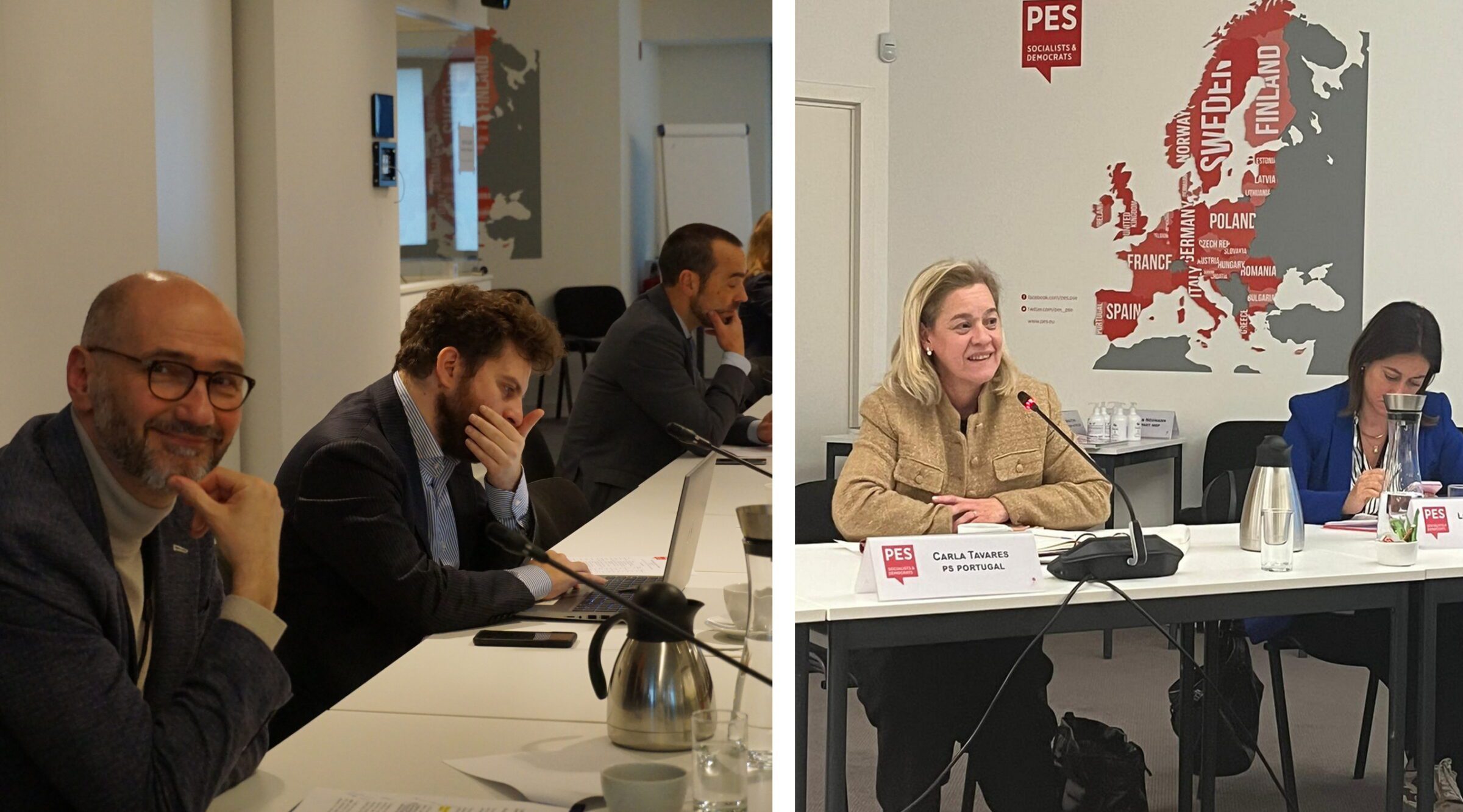Today the **Financial and Economic Network** (FEN) convened at the Party of European Socialists headquarters in Brussels. This was the first FEN meeting of this mandate and was attended both in person and online and focused on the way forward to achieve our **key priorities**. As Europe continues its transition, our progressive voice continues to advocate for a “**Made in Europe” strategy**, and targeted solutions to support legacy industrial sectors who are in midst of transitioning, notably the European **automotive sector**. Participants agreed that priorities in the **next Multiannual Financial Framework** with an ambitious budget.
**Maria João Rodrigues**, President of FEPS, and Chair of the meeting, said:
> _“Industrial policy is at the heart of today’s key challenges for Europe._
>
> _“**Industrial strategy** must be based on a **proactive approach that harnesses the collective strength of the EU.** It must ensure that the **green and digital transitions** have a lasting, **transformative, and positive impact.** The focus should be on projects in which the European dimension is a source of added value, and on avoiding fragmentation. By promoting long-term solutions, and aligning policies with public objectives, we can address key challenges that are facing European industries: high energy prices, skills shortages, and the need to strengthen our supply chain. An **Investment Plan for the Green and Digital Transitions** would allow us to build a future-proof strategy: bringing sustainable reindustrialisation to the continent, creating high quality jobs. One of the sectors where this is clearest is **the automotive industry**, and this is why we are pushing to strengthen investments in the future of this vital sector**.** Our strategy is there to support the transition of these traditional industries, as well as to invest in further critical sectors such as the defence industry.**’’**_
Following this, participants stressed the importance of taking action to **strengthen the European car industry** and to **protect** the 13.8 million workers it employs, representing 6% of all EU jobs. Participants highlighted the need for **innovation** within the sector and the need to ensure that we **stick to our ambitions on the environmental transition**, **defending quality jobs in the sector, and supporting producers** with **clear conditions,** striving towards a cleaner economic model. A clean, circular economy creates high-quality jobs, and this must also be the case for sectors transitioning, particularly the **automotive industry.** Participants stressed the importance of the **just transition**, sustaining the demand, and ensuring that every family has access to an **affordable electric vehicle.**

As we approach the next **MFF** negotiation, participants discussed the best way to ensure that our priorities are adequately reflected, with an **ambitious** **budget** that **meets** the **European Union’s objectives.** They discussed the need for a European investment capacity, for preserving social and territorial cohesion, and therefore, the need to press on with the discussion on own resources. The chair commended the work of outgoing PES Commissioner for Economy, **Paolo Gentiloni,** who has been a crucial progressive voice, championing policies that promote growth to the benefit of all and shared prosperity.
The meeting also heralded the arrival of our **four new PES commissioners**, including **two executive vice-presidents**, taking the lead in **responsibilities that concerns the topics of discussion of this network,** and welcomed the appointment of **António Costa** as President of the European Council.
As Europe’s largest progressive force, PES will continue to advocate for a just transition and economic policies that leave no one behind.